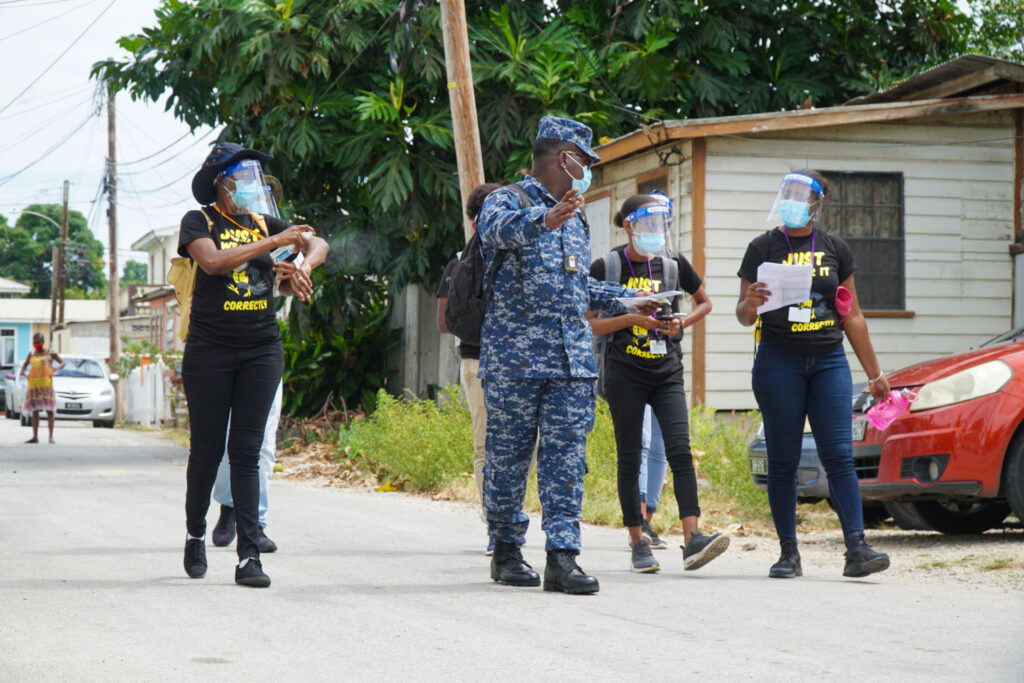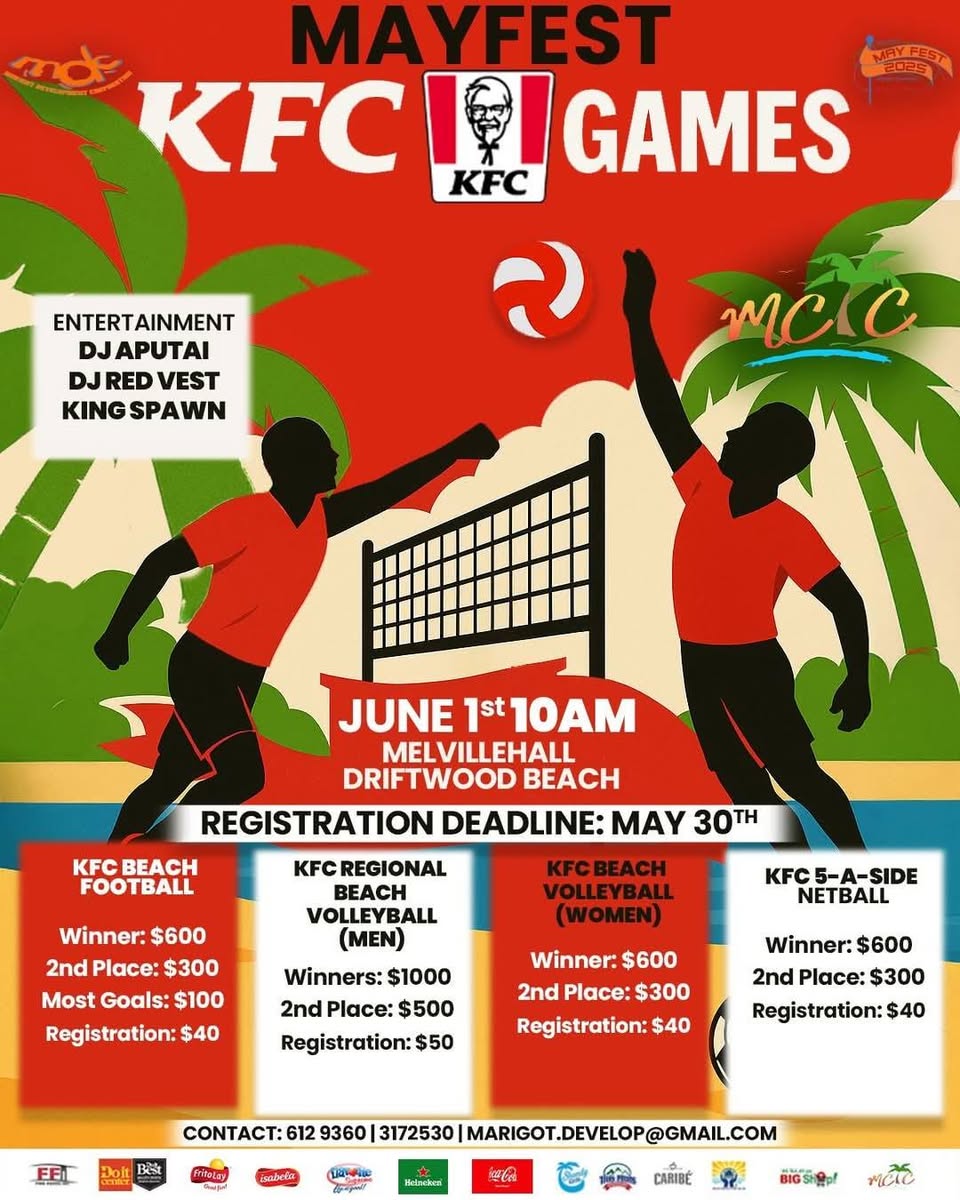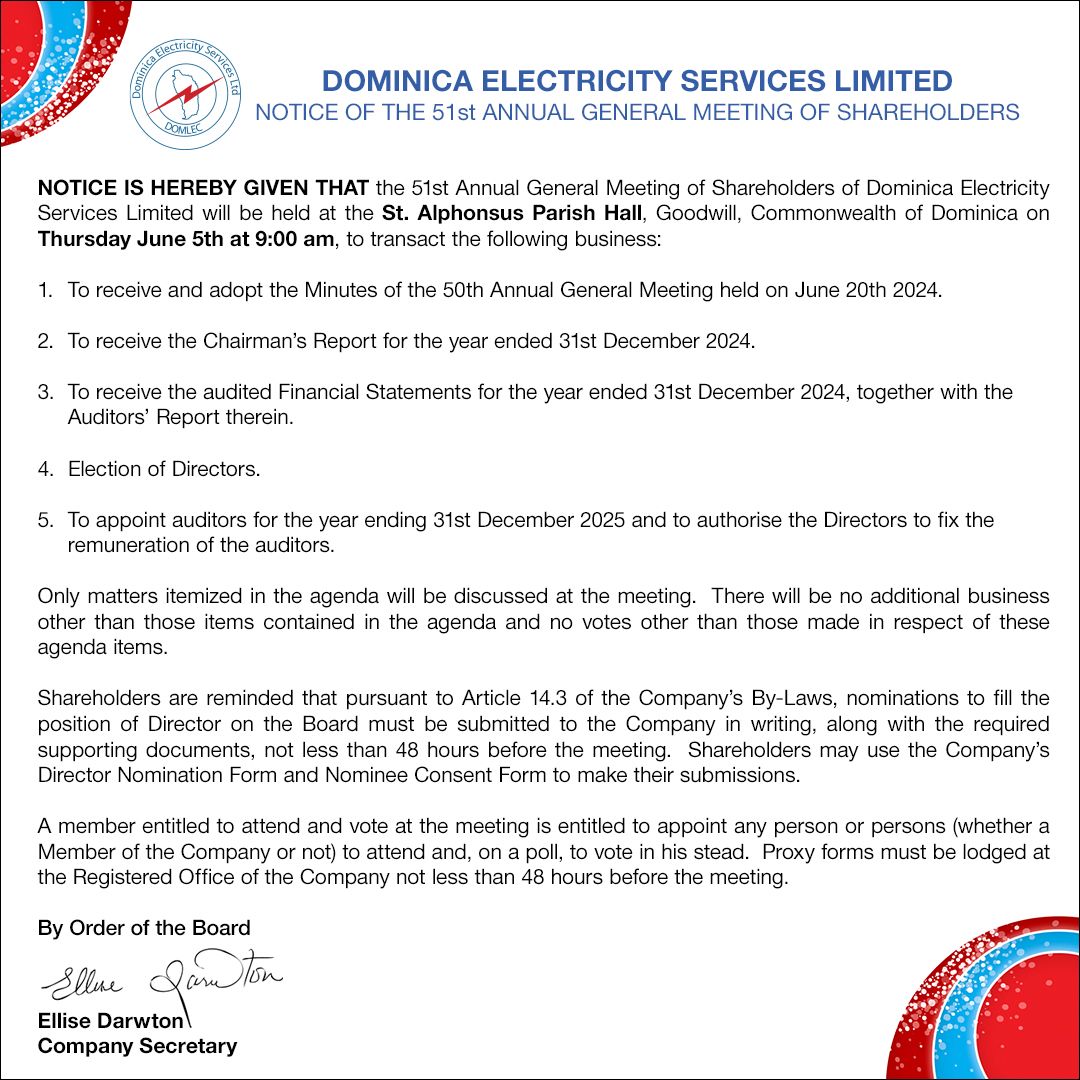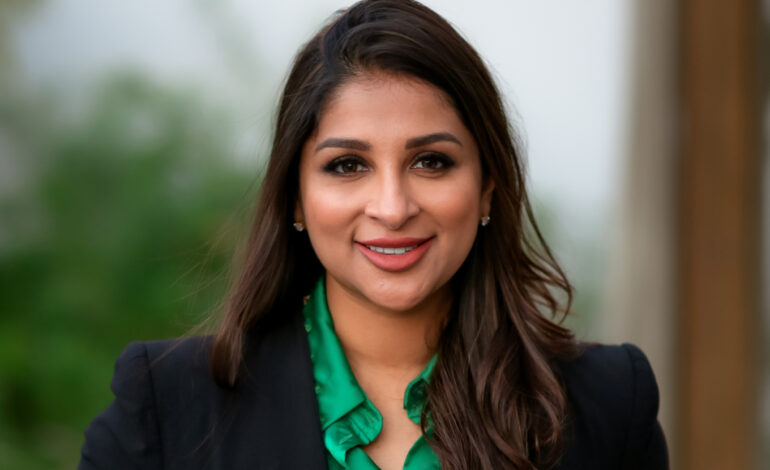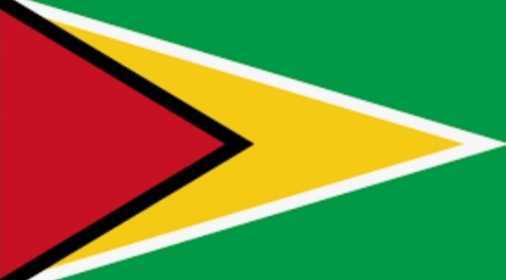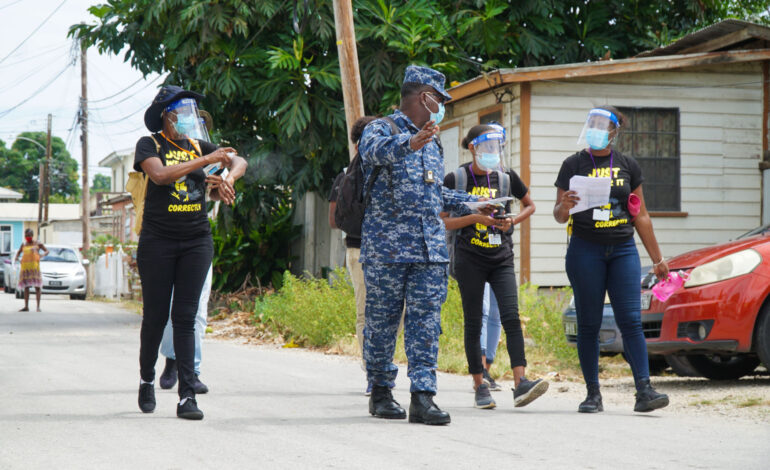
The University of the West Indies, Cave Hill Campus. Tuesday, May 25, 2021. Over 400 regional students at The University of the West Indies, Cave Hill Campus have been hailed as heroes for their courageous fieldwork at the height of a COVID-19 resurgence in Barbados earlier this year.
In February, the students signed up for the Community Evaluation and Testing Project, popularly known as Operation Seek and Save; a data gathering exercise organised by the Government of Barbados and Cave Hill Campus to help stem a deadly second wave of the pandemic, and also contain the growing spread of dengue fever.
In addition to conducting in-person interviews island-wide, to help determine the island’s prevalence of the coronavirus, and to report on susceptible breeding grounds for the infectious aedes-aegypti mosquito, the students also contributed to the rollout of the island’s COVID-19 vaccination programme by scheduling appointments and assisting with data entry at vaccination sites.
On May 17, the students were saluted in a special virtual appreciation ceremony during which Cave Hill Campus Principal Professor the Most Honourable Eudine Barriteau commended their courage, character and commitment and noted these qualities were exhibited by some of the youngest members of the Campus community.
“The public health intervention project in which they played a vital role may well be a global precedent. It saw hundreds of young men and young women confront danger daily to help … the region fight a worldwide health threat, the likes of which we may not see again in our lifetime,” Professor Barriteau said, adding that it was nothing short of sheer bravery.
“As a second and deadlier wave of COVID-19 gained momentum, you faced down the virus to participate in an essential field study that would yield critical life-saving data. And you did it without flinching, even as the majority of the Barbadian population hunkered down at home under national lockdown or too hesitant to leave the relative safety of their households. To you [we] owe an enormous debt of gratitude,” she told the students many of whom comprised the virtual audience.
All student volunteers received a stipend for their participation while the Barbadian contingent received an additional benefit of hours credited under a national ‘Give Back’ programme that requires them to undertake an arranged period of community service in exchange for state-sponsored tuition.
Prime Minister of Barbados, the Honourable Mia Mottley, praised the students’ participation as “a valuable lesson in civics, bravery and compassion” and added: “What you have given to our country by manning the data entry process of the national vaccination effort, even after the Operation Seek and Save initiative…has surpassed what would otherwise have been envisaged as the student’s repayment of his or her debt. You have set for all others at this University and for those who will follow you at UWI, a new benchmark for what … Give Back will mean for future students.”
Co-coordinator of the national vaccination programme, Major David Clarke, thanked the volunteers for their service, saying it was an exercise that required them to be meticulous in dealing with the public.
“Certainly the Call Centre [volunteers] have had that experience, especially [when] calling older people. Because what we thought may have been a five-minute telephone call really turned out to be a half an hour telephone call, as a lot of the elderly population were quite keen to have somebody to engage them in conversation.”
Retired Senior Health Officer, Dr Elizabeth Ferdinand, the programme’s joint co-coordinator also had high praise for the students’ spirit of volunteerism, and said she was happy with the quality of their work.
“I first met them when they came to have their vaccination and to be orientated to what they were going to do, and they were such an enthusiastic bunch. I remember they were a bit nervous about having the vaccine. I had it the same day as they did, and that was just the first day of the beginning of the campaign. They were a little nervous but they settled in quickly. They were so enthusiastic that they all went out and took a picture of them with their blue cards in the air and put it on social media,” Dr Ferdinand noted.
Volunteer, William Gordon, who is pursuing a BSc in Social Sciences, told the audience he was proud of his fellow students, as to serve one’s country is perhaps one of the proudest achievements of any citizen.
“I don’t think any of us really understood what we signed up for. We knew the name of the programme but in terms of being out in the field and the task that was required of us, I don’t think we really understood exactly what we were going to have to do,” Gordon said.
“I’m so proud of all of us, I’m proud of every single student who took the time to fight for their country in the three weeks that we were on the road.”
When the campus put out a call for volunteers, BSc Biochemistry student Sachia Reid-Thomas did not hesitate to step forward.
“I love volunteering. Not only am I an active member of the Duke of Edinburgh Award [Scheme], but I have been an active member of the Girl Guides Association of Barbados for 15 years so volunteering comes naturally to me,” she said.
She also encouraged members of the public to be of service to others. “I would like to encourage young people to volunteer because it gives us experiences that we may need and can be quite useful further down in life… to give of their time and not to feel obligated or forced to do it. Let it come from you,” she said.
Head of the Department of Management Studies at Cave Hill, Dr Dion Greenidge, who led Command Centre into which data was fed, reported that the exercise surveyed 86,567 households in Barbados’ 30 constituencies.
“During that process your hard work resulted in us being able to identify positive results from 281 rapid antigen tests and 242 PCR (Polymerase Chain Reaction) tests,” he stated.
Lieutenant Colonel Junior Browne, who led the logistical component in which members of the Barbados Defence Force accompanied students into the field, lauded the work of the volunteers.
“It was no [easy] task to touch over 85,000 households in order to find out the state of COVID-19 and dengue within our communities. So bravo and well done to you,” he said, while also congratulating the soldiers who provided map reading and route services.



